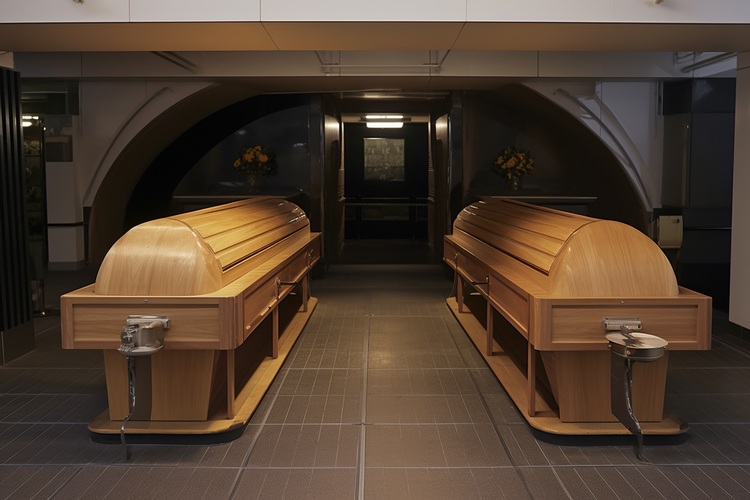Cremation Services: A Complete Guide for Families
Cremation has emerged as an increasingly popular choice for families seeking meaningful ways to honor their loved ones. This comprehensive guide explores the growing preference for cremation services, the detailed process involved, financial considerations, and essential planning tips to ensure a respectful farewell that aligns with your family's values and budget.

Why Cremation Is Becoming the Preferred Choice for Families
The shift toward cremation services reflects changing cultural attitudes and practical considerations. According to the National Funeral Directors Association, cremation rates have steadily increased over the past two decades, with more families choosing this option over traditional burial. This preference stems from several factors including flexibility in memorial services, environmental considerations, and personal beliefs about end-of-life care.
Modern families often appreciate the versatility that cremation offers. Unlike traditional burial services that require immediate decisions about cemetery plots and headstones, cremation allows families time to plan personalized memorial services. This flexibility proves particularly valuable when family members live in different geographic locations or when scheduling conflicts arise during the grieving process.
Discover the Cremation Process and Its Benefits
The cremation process involves several carefully regulated steps designed to treat the deceased with dignity and respect. Initially, the funeral home obtains necessary permits and documentation, including death certificates and cremation authorization forms. The body is then prepared and placed in a cremation container, which is constructed from combustible materials.
The actual cremation takes place in a specialized chamber called a retort, where temperatures reach between 1,400 and 1,800 degrees Fahrenheit. This process typically takes two to three hours, after which the remaining bone fragments are processed into a fine powder commonly referred to as cremated remains or ashes.
Benefits of cremation extend beyond the practical aspects. Many families find comfort in the ability to keep their loved one’s remains close, whether through urns displayed in the home or portable keepsakes. Additionally, cremation offers environmental advantages, as it requires less land use compared to traditional burial and eliminates the need for embalming chemicals.
How Cremation Saves Money While Honoring Your Loved One
Cost considerations play a significant role in many families’ decision-making process. Direct cremation, which excludes funeral services, typically ranges from $1,000 to $3,000, making it considerably more affordable than traditional burial services that can cost $7,000 to $15,000 or more. These savings allow families to allocate resources toward meaningful memorial services or other priorities during their time of loss.
The financial benefits extend beyond immediate costs. Cremation eliminates expenses associated with cemetery plots, which can range from $1,000 to $5,000 depending on location, plus ongoing maintenance fees. Families also save on casket costs, as cremation containers are significantly less expensive than traditional burial caskets.
| Service Type | Provider | Cost Estimation |
|---|---|---|
| Direct Cremation | Neptune Society | $1,695 - $2,495 |
| Cremation with Memorial | Dignity Memorial | $2,500 - $4,000 |
| Full Service Cremation | Service Corporation International | $3,000 - $6,000 |
| Direct Cremation | Cremation Society of America | $1,195 - $1,795 |
Prices, rates, or cost estimates mentioned in this article are based on the latest available information but may change over time. Independent research is advised before making financial decisions.
Planning a Cremation: Key Tips for a Respectful Farewell
Successful cremation planning requires attention to both legal requirements and personal preferences. Begin by selecting a reputable funeral home or cremation service provider in your area. Research their credentials, read reviews from other families, and compare services offered. Many providers offer package deals that include death certificate copies, obituary assistance, and basic memorial services.
Consider the timing of memorial services when planning a cremation. Since cremation doesn’t require immediate burial, families can schedule celebration of life ceremonies at convenient times for all attendees. This flexibility allows for more thoughtful planning and can result in more meaningful gatherings that truly reflect the deceased’s personality and preferences.
Documentation plays a crucial role in cremation planning. Ensure you have multiple copies of death certificates, as these are required for insurance claims, financial account closures, and other administrative tasks. Additionally, discuss preferences for the cremated remains with family members to avoid future conflicts about their final disposition.
Personalizing the cremation process can provide comfort during the grieving process. Consider options such as witness cremation, where family members can be present during the beginning of the process, or memorial jewelry that incorporates a small portion of the cremated remains. Many families also choose to scatter remains in meaningful locations, though this requires research into local regulations and obtaining proper permits.
Cremation services offer families a dignified, flexible, and cost-effective way to honor their loved ones while accommodating modern lifestyles and financial considerations. By understanding the process, benefits, and planning requirements, families can make informed decisions that provide comfort during difficult times while creating lasting tributes to those they’ve lost.



